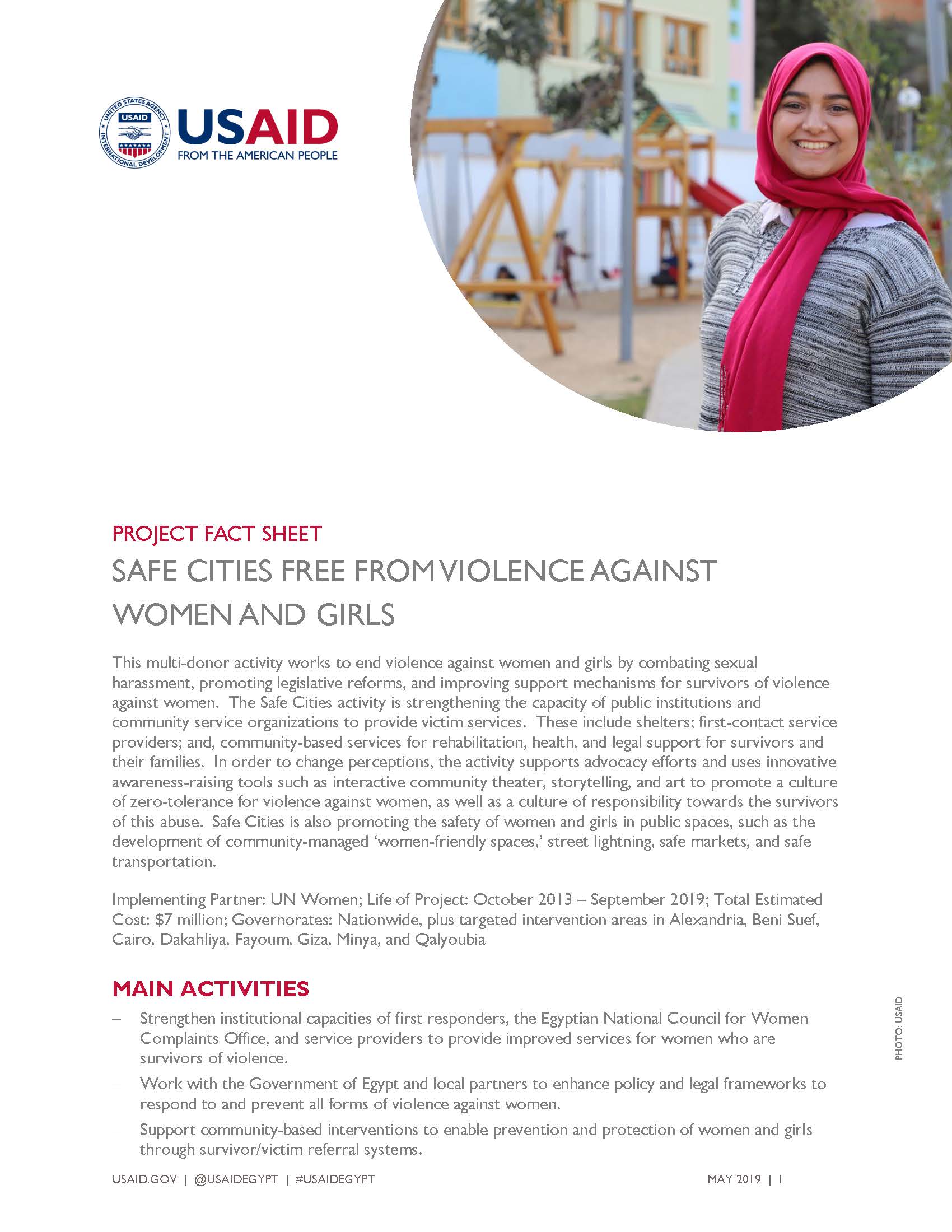Speeches Shim
This multi-donor activity works to end violence against women and girls by combating sexual harassment, promoting legislative reforms, and improving support mechanisms for survivors of violence against women. The Safe Cities activity is strengthening the capacity of public institutions and community service organizations to provide victim services. These include shelters; first-contact service providers; and, community-based services for rehabilitation, health, and legal support for survivors and their families. In order to change perceptions, the activity supports advocacy efforts and uses innovative awareness-raising tools such as interactive community theater, storytelling, and art to promote a culture of zero-tolerance for violence against women, as well as a culture of responsibility towards the survivors of this abuse. Safe Cities is also promoting the safety of women and girls in public spaces, such as the development of community-managed ‘women-friendly spaces,’ street lightning, safe markets, and safe transportation.
Implementing Partner: UN Women; Life of Project: October 2013 – September 2019; Total Estimated Cost: $7 million; Governorates: Nationwide, plus targeted intervention areas in Alexandria, Beni Suef, Cairo, Dakahliya, Fayoum, Giza, Minya, and Qalyoubia
MAIN ACTIVITIES
- Strengthen institutional capacities of first responders, the Egyptian National Council for Women Complaints Office, and service providers to provide improved services for women who are survivors of violence.
- Work with the Government of Egypt and local partners to enhance policy and legal frameworks to respond to and prevent all forms of violence against women.
- Support community-based interventions to enable prevention and protection of women and girls through survivor/victim referral systems.
- Support advocacy and awareness-raising campaigns aimed at changing perceptions of violence against women and the culture of blaming victims.
RESULTS TO DATE
- Supported the Government of Egypt’s efforts to issue Presidential Decree No. 50 of 2014, which modified articles in the country’s penal code, criminalized sexual harassment in Egypt for the first time in its history, and prescribed severe punishment for sexual assault.
- Led coordination among the Ministry of Justice, National Council of Women, UN agencies, and other stakeholders in the development of Egypt’s first National Strategy on Combating Violence against Women, which serves as a blueprint for national provision of victim services, a nationwide referral system, and improved legal protection against all forms of violence against women.
- Trained 2,700 prosecutors on reviewing and prosecuting cases of violence against women more effectively, and also emphasized their role as first responders to women who are survivors of violence through their enforcement of legally binding instructions that can support women survivors and build legal cases against perpetrators.
- Launched two nationwide awareness campaigns on women’s empowerment: “Speak-up” in 2016 and “Taa’ Marbouta” in 2017. For the first time the Government of Egypt, through the National Council of Women, promoted national awareness of the importance of combating and reporting cases of violence against women, providing victim services, and ensuring women’s full participation in the economy.
- Upgraded four women’s shelters in 6 October, Alexandria, Mansoura, and Minya governorates to accommodate more survivors and to serve as a one-stop shop for victims of domestic and sexual violence. From 2016-2018, the number of women and children hosted in the shelters increased by 52 percent.
- Conducted extensive community outreach through trained community workers who provided information on shelters as safe accommodation for women survivors of violence, as well as other resources including psychosocial support, legal advice, and other services. From 2017-2018, trained community worker visits to households increased from 150 to 10,958, and the number of women referred to relevant services grew from 1,600 to 4,564.
- Trained 140 shelter staff on a full range of services available for both women residents and walk-in victims, including psychosocial, medical, legal, and economic/vocational support, and other services. From 2016-2018, there was a 443% increase in the number of women benefiting from consultation services.
- Trained 500 service providers – including doctors in local health units, representatives from faith-based organizations, and NGO staff – on assisting victims of violence in accessing health, psychological, and legal services; utilizing life skills training; and, obtaining economic opportunities. Since 2015, these service providers have helped more than 16,000 people access services and resources, and they have conducted awareness outreach activities with an additional 40,000 community members.
- Supported the establishment of Egypt’s first on-campus and university-sanctioned Anti-Harassment Unit at Cairo University to promote student awareness of violence against women and gender roles in Egyptian society, and provide services and resources to student victims.
- Facilitated the creation of two inclusive, community-owned spaces in Imbaba and Ezzbet el Haggana that are safe public spaces for women and girls. Equipped with safety and security features that diminish the likelihood of sexual harassment, these sites host women’s empowerment activities, such as life skills training.


Comment
Make a general inquiry or suggest an improvement.